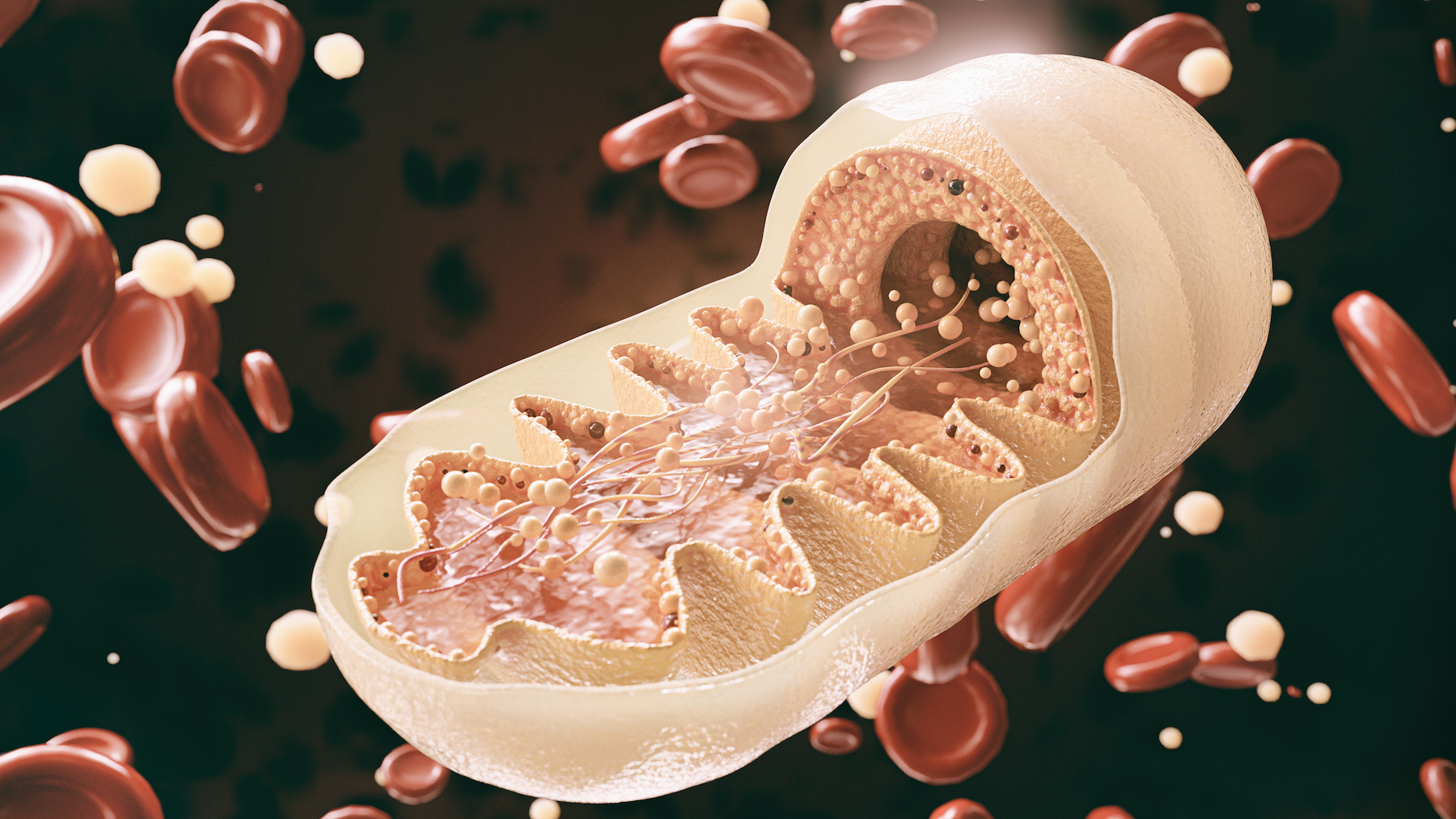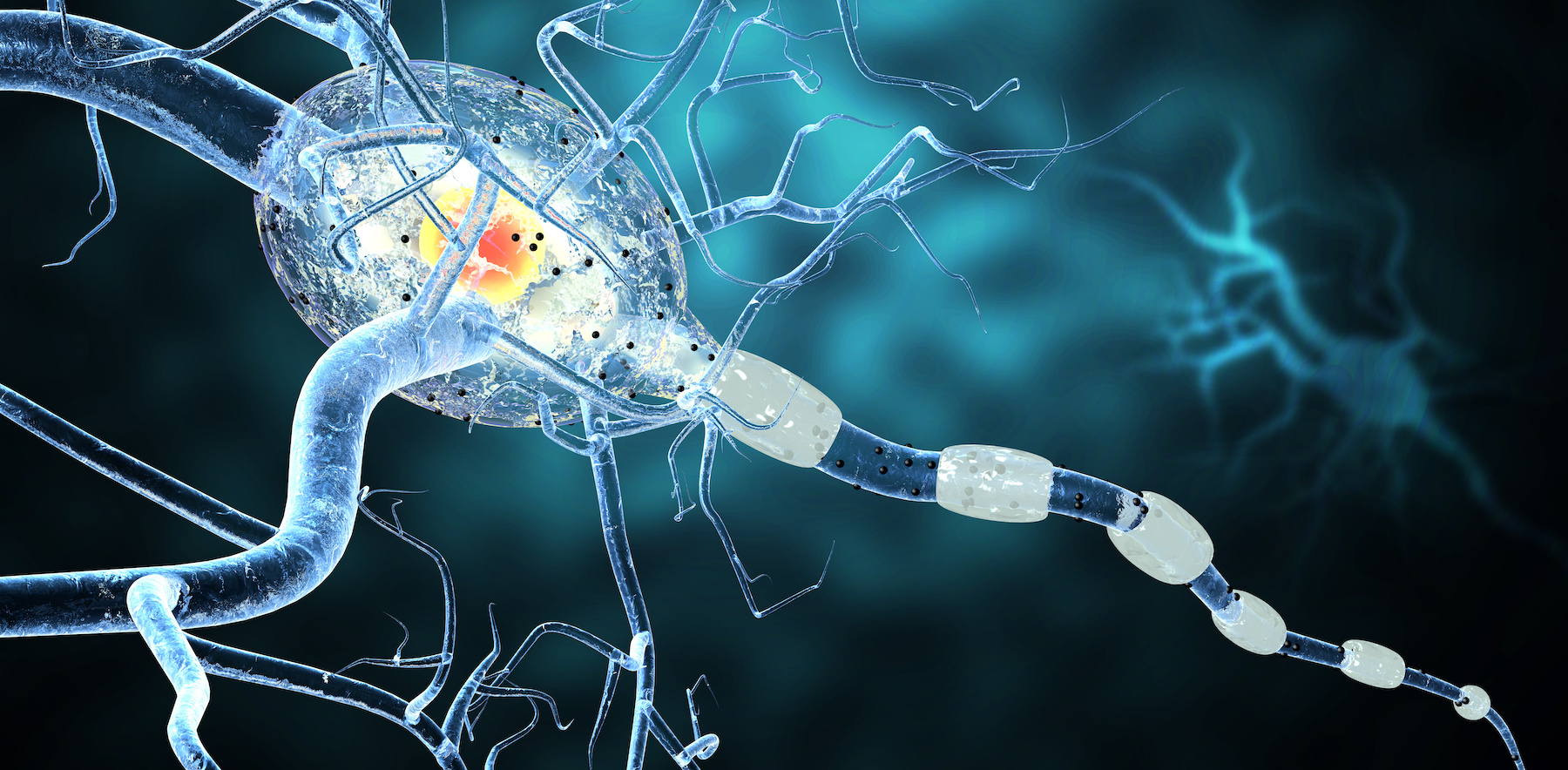

What the heck are mitochondria and why should you care? Mitochondria play an important role in the body’s energy production. Without mitochondria, we can’t function optimally!
When mitochondria aren’t working right, problems arise. Let’s take a look at what mitochondria really are and answer questions like:
- What role does mitochondria play in the body?
- What does mitochondrial dysfunction look like?
- What causes mitochondrial dysfunction and how can I prevent it?
- How can I support mitochondrial health?
Let’s dive in and answer these questions.
What are Mitochondria?
Mitochondria are cellular organelles in the body responsible for generating chemical energy needed for biochemical reactions. This energy is then stored in small molecules called ATP (adenosine triphosphate). Essentially, mitochondria play a role in energy creation and storage within the body.
They also play key roles in many other processes like:
- RNA/DNA synthesis
- Supporting immunity (innate immune response)
- Apoptosis, or programmed cell death
- Regulation of stem cells
- Neurotransmitter and hormone metabolism
- Maintaining calcium homeostasis
When mitochondrial dysfunction occurs, problems can occur. We’ll look at these next.
Mitochondrial Dysfunction and What Causes It
Unfortunately, mitochondrial dysfunction is common. It can be caused by a variety of factors, including:
- Nutrient deficiencies
- Chronic infections
- Environmental toxins like mold, chemicals, toxic metals, air pollution, and cigarette smoke
- Alcohol
- Some prescription medications
On a smaller, cellular level, mitochondrial dysfunction occurs because of changes in the cell cycle, metabolism, and other important aspects of cell survival.
When a person has mitochondrial dysfunction, their cells do not have enough energy. This leads to a variety of unwanted symptoms. Some associated symptoms someone might have with mitochondrial dysfunction include:
- Heart or kidney problems
- Seizures
- Stroke
- Cancer
- Tissue Damage
- Neurodegenerative disorders
How To Support Mitochondrial Health
Good mitochondrial health starts with a healthy lifestyle – quality sleep, exercise, hormone balance, and a healthy diet. Let’s look at each.
Quality Sleep and Mitochondrial Health
Sleep is important for your mitochondria, much like it’s important for overall health. Getting quality sleep each night is essential. If you’re struggling, take a look at your sleep routine.
- Are you going to bed at the same time each day?
- Do you use your phone right before bed?
- Do you eat right before going to sleep?
There are some basic changes you can make to support sleep. Create a bedtime routine by going to bed at the same time each night, avoiding screen time, and waking up at the same time each morning.
Exercise to Build Muscle Mass
Building muscle mass is one way to increase ATP production and support mitochondrial health. One study showed that even with mitochondrial damage, strength training increased ATP production. Weight lifting and HIIT (high-intensity interval training) are great places to start to build muscle mass. Need more motivation to get stronger? Read this.
Hormonal balance
Mitochondria play an important role in hormone production. After they are generated, these hormones influence mitochondrial activities within the body. So it makes sense that hormonal balance supports mitochondrial health.
Decreasing toxin exposure is one way to support hormone health. Since our environment can expose us to lots of toxins, starting with some changes there can help.
- Filter your water with reverse osmosis
- Use an air filter for purified air
- Eat organic foods when you can – avoid the Dirty Dozen
Learn more about how to detoxify your body and environment to support mitochondrial health here.
Eat a Healthy Diet
I’m sure you’ve heard of the keto diet. But did you know that the keto diet decreases oxidative stress, increases antioxidants, and can increase mitochondria? Studies also show ketogenic diets may enhance mitochondrial functioning. Along with supporting mitochondrial functioning, the ketogenic diet also helps with weight loss and decreases visceral fat.
So what exactly is the ketogenic diet? It’s an alternative to the standard American diet (SAD), which is heavy in carbohydrates. Instead, the keto diet focuses on low carb, adequate protein, and high fats. The percentage of micronutrients generally looks like:
- 75% fat
- 20% protein
- 5% carbohydrates
However, percentages can vary from person to person depending on their body’s individual needs and differences in metabolizing food.
Eating a keto diet is a great way to support mitochondria health. Here’s how to start strong on the ketogenic diet – plus here’s another great resource to get you started.
Supplementation
Did you know that certain nutrients can help protect mitochondria? Fatty acids, vitamin C, zinc, copper, magnesium, folate and vitamin B12 for example all play a role in supporting mitochondria.
A great foundation begins with a high-quality multivitamin and mineral supplement, taken 2-3 times daily or as recommended by your provider. Here is one in the bioavailable form, so your body can absorb everything you need.
Other supplements to support mitochondrial health include:
- Super CoQ10. Deficiency of this antioxidant is correlated with decreased ATP production. Research has also shown an interesting correlation between longevity and the ability to produce CoQ10 in species.
- Fatty Acids like Omega 3’s play an important role in both ATP and energy production. They influence the makeup of the mitochondrial membranes, making them a key nutrient in mitochondrial function.
- Vitamin E can protect against oxidative stress in the mitochondria in animals. Although more research is needed for humans, this is a promising finding.
- N-Acetyl Cysteine (NAC) helps to increase glutathione, which is essential for mitochondrial protection and support.
Support Your Health With Functional Medicine!
Improving your mitochondrial health starts with a healthy lifestyle. Eating an anti-inflammatory diet, getting quality sleep, and incorporating exercise and supplementation into your daily routine play a big role in mitochondrial health. But sometimes that’s not enough.
Here at Arizona Wellness Medicine, we have a team of highly trained functional medicine providers to create a personalized plan for you so you can feel your best. Whatever you’re struggling with, we have a team of providers who can help. Schedule an appointment here.
Resources:
https://www.technologynetworks.com/cell-science/lists/5-roles-mitochondria-play-in-cells-289354
https://www.ncbi.nlm.nih.gov/pmc/articles/PMC4684129/
https://www.ncbi.nlm.nih.gov/pmc/articles/PMC4417658
https://www.ncbi.nlm.nih.gov/pmc/articles/PMC5828461/
https://www.ncbi.nlm.nih.gov/pmc/articles/PMC5952932/
Share:
Dr. Emily Parke
Social Media
Most Popular Posts
Subscribe To Our Newsletter
Related Posts

Estrogen Metabolism: How It Works, Why It Matters, and Supplements for Healthy Estrogen Metabolism
Estrogen metabolism is vital to estrogen regulation. Learn how it works and how the DUTCH test can provide insight into hormonal imbalance.

The Paleo Diet Versus the Autoimmune Paleo Diet: Differences and Benefits
Learn the difference between the paleo and the autoimmune paleo diet, including food lists, what foods to avoid, and all the health benefits!

A Complete View of Multiple Sclerosis: Symptoms, Diagnosis, and Functional Medicine Treatment Options
Get a complete view of multiple sclerosis, including common symptoms and treatment options, including nutrition and supplementation.

Headaches and How to Find Relief: The Functional Medicine Way
Learn about functional medicine headache treatment, various headache types, and how to achieve lasting relief with complementary approaches.
